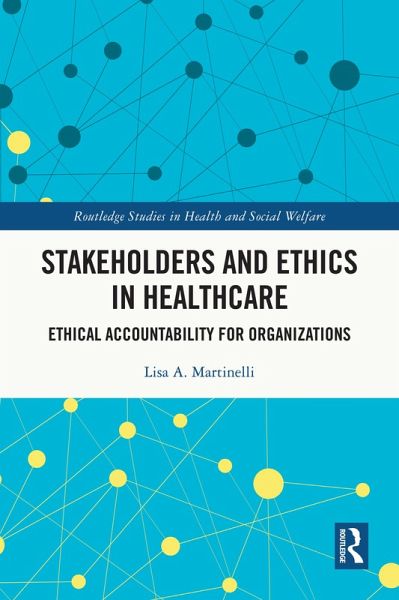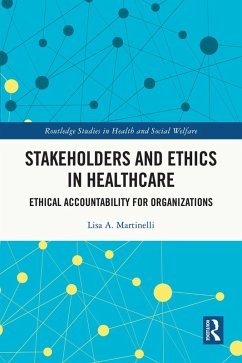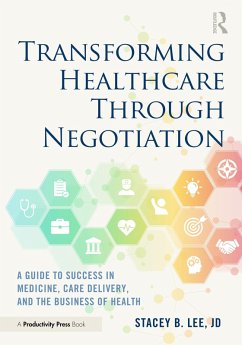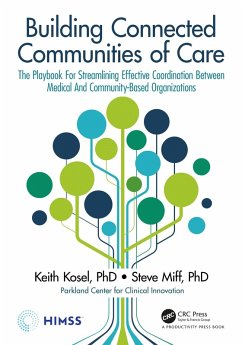
Stakeholders and Ethics in Healthcare (eBook, ePUB)
Ethical Accountability for Organizations
Versandkostenfrei!
Sofort per Download lieferbar
39,95 €
inkl. MwSt.
Weitere Ausgaben:

PAYBACK Punkte
20 °P sammeln!
This ground-breaking book uses organizational ethics and stakeholder theory to explore the ethical accountability of leadership in healthcare organizations to their distinct vulnerable stakeholder communities.The book begins with a discussion of the moral agency of healthcare organizations and introduces stakeholder theory. It then looks at key ethical challenges in relation to the confidentiality and privacy of healthcare data, before turning to child health and interventions around issues such as obesity, maltreatment, and parenting. The book ends by focusing on ethics of care in relation to...
This ground-breaking book uses organizational ethics and stakeholder theory to explore the ethical accountability of leadership in healthcare organizations to their distinct vulnerable stakeholder communities.
The book begins with a discussion of the moral agency of healthcare organizations and introduces stakeholder theory. It then looks at key ethical challenges in relation to the confidentiality and privacy of healthcare data, before turning to child health and interventions around issues such as obesity, maltreatment, and parenting. The book ends by focusing on ethics of care in relation to older people and people with disabilities.
An insightful contribution to thinking about ethics for contemporary healthcare management and leadership, this interdisciplinary book is of interest to readers with a background in healthcare, business and management, law, bioethics, and theology.
The book begins with a discussion of the moral agency of healthcare organizations and introduces stakeholder theory. It then looks at key ethical challenges in relation to the confidentiality and privacy of healthcare data, before turning to child health and interventions around issues such as obesity, maltreatment, and parenting. The book ends by focusing on ethics of care in relation to older people and people with disabilities.
An insightful contribution to thinking about ethics for contemporary healthcare management and leadership, this interdisciplinary book is of interest to readers with a background in healthcare, business and management, law, bioethics, and theology.
Dieser Download kann aus rechtlichen Gründen nur mit Rechnungsadresse in A, B, BG, CY, CZ, D, DK, EW, E, FIN, F, GR, HR, H, IRL, I, LT, L, LR, M, NL, PL, P, R, S, SLO, SK ausgeliefert werden.













